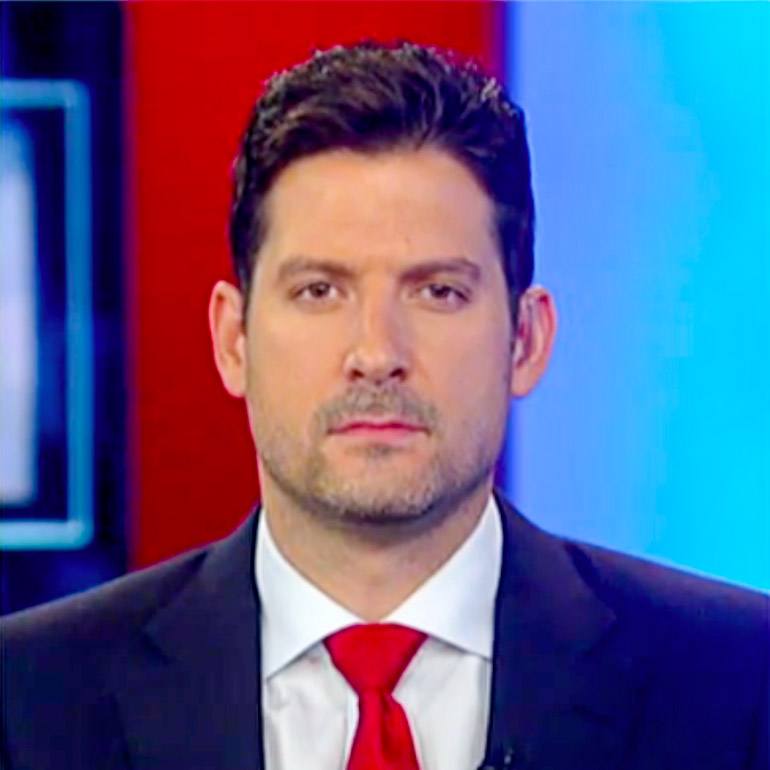China is using every weapon in its propaganda arsenal to deflect responsibility for unleashing a deadly pandemic upon the world. Fortunately, its inexorable ability to manipulate global opinion is coming to an end.
It was infuriating when the communist Chinese government lied to the world about the deadly new strain of coronavirus that emerged in Wuhan, causing immeasurable suffering by denying public health authorities the opportunity to take timely action. It was similarly infuriating when Chinese officials and state media shamelessly sought to blame Americans for the outbreak.
It’s even more infuriating, however, that the anti-Trump media and political establishment in this country consistently refuse to challenge Beijing’s perfidy. Instead, parroting their propaganda is the norm.
It’s incredibly difficult and dangerous to criticize the Chinese government while living under its oppressive yoke—especially for a native-born Chinese citizen. The state laws are incredibly strict about media content, big tech is heavily censored and state-infiltrated, and journalists are harshly penalized for criticizing the government. The Chinese government is willing to threaten, silence, and detain whistleblowers —and allow hundreds of thousands of people around the world to become infected with the deadly coronavirus— simply to avoid accountability.
I have sympathy for the Chinese citizens who have no choice but to abide by the communist regime’s dictates, but I have no such sympathy for American “journalists” operating for left-leaning news outlets peddling Chinese propaganda by insisting that it’s racist for President Trump and others to speak of the “Chinese” or “Wuhan” coronavirus, despite the long-standing practice of naming new diseases after their places of origin.
When Americans side with hostile totalitarian regimes against their own president, it raises serious questions about where their loyalties lie. Either China is able to effectively manipulate American reporters by appealing to their sense of “social justice,” or else there are a large number of so-called journalists more concerned with toeing the Chinese government’s line than with reporting the unvarnished truth.
It’s during moments like this when we become aware of just how financially dependent large corporations in the United States are on the Chinese market. Bloomberg News —the global media conglomerate owned by former Democrat presidential candidate Michael Bloomberg— is notoriously craven when it comes to China, suppressing negative coverage of the regime in order to preserve its lucrative business dealings in that country. Unsurprisingly, Bloomberg News has been at the forefront of the movement to challenge President Trump’s use of the term “Chinese coronavirus.”
But Bloomberg is far from the only major U.S. corporation that does extensive business in China. That’s unavoidable to a certain extent, considering that China still accounts for roughly 25 percent of global manufacturing output. Though, many firms have been shifting their operations to other low-cost countries in response to the President Trump’s strategic counter-tariffs on China.
The Chinese government also insinuates itself into our society in a variety of overt ways. China currently owns over a trillion dollars worth of U.S. debt, which it uses to manipulate the value of its own currency in order to stimulate exports. China is also looking to establish a permanent presence in our stock markets—in 2018, China’s Chongqing Casin Enterprise Group Co. tried to purchase the Chicago Stock Exchange for under $100 million. The deal was only thwarted thanks to President Trump, who has also considered delisting 156 Chinese companies —11 of which are openly state-owned— from the NASDAQ and New York Stock Exchanges.
Chinese investors have had more luck on other fronts, though, purchasing a number of massive U.S. companies in recent years, including America’s largest movie theater chain (AMC) as well as technology and entertainment companies such as Motorola, Lenovo, Riot Games, and Legendary Entertainment Group (which produced Jurassic World). Over the past decade, China has also ramped up its media presence around the world, subsidizing the rapid expansion of state-owned enterprises, purchasing stakes in foreign news outlets, and inviting journalists to all-expenses-paid training on how to favorably cover the Chinese government.
The Chinese Communist Party doesn’t hesitate to leverage its growing influence, either. Just recently, Beijing responded to negative coronavirus coverage by announcing that it will expel American journalists from China, prompting The Washington Post, The New York Times, and The Wall Street Journal to write an open letter begging the Chinese government to reconsider.
Fortunately, for the past three years President Trump has been working to curtail China’s political and economic influence, exposing the inherent fragility of that country’s authoritarian system of government. The president’s strategic counter-tariffs, for instance, were already creating a significant drag on China’s economic growth long before the coronavirus erupted and caused massive economic disruptions.
The reluctance of the American mainstream media to criticize China is a relic of an era that is coming rapidly to a close. As China’s influence continues to wane in the coming years, we will surely look back as a country and wonder why so many American companies were so eager to carry water for our rivals for so long.
Brett Velicovich is a U.S. Army veteran and author of “Drone Warrior: An Elite Soldier’s Inside Account of the Hunt for America’s Most Dangerous Enemies”

Join the Discussion
COMMENTS POLICY: We have no tolerance for messages of violence, racism, vulgarity, obscenity or other such discourteous behavior. Thank you for contributing to a respectful and useful online dialogue.